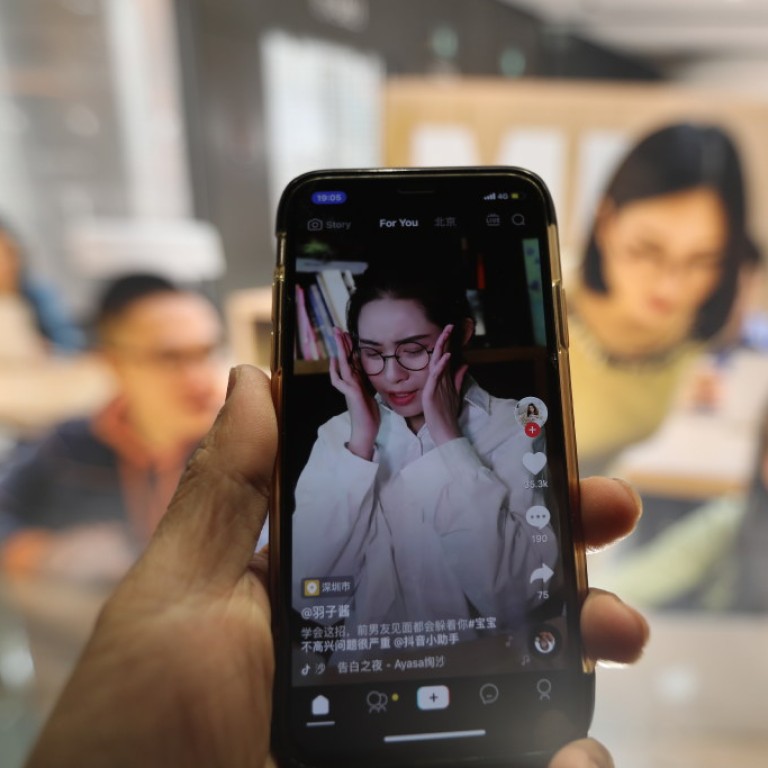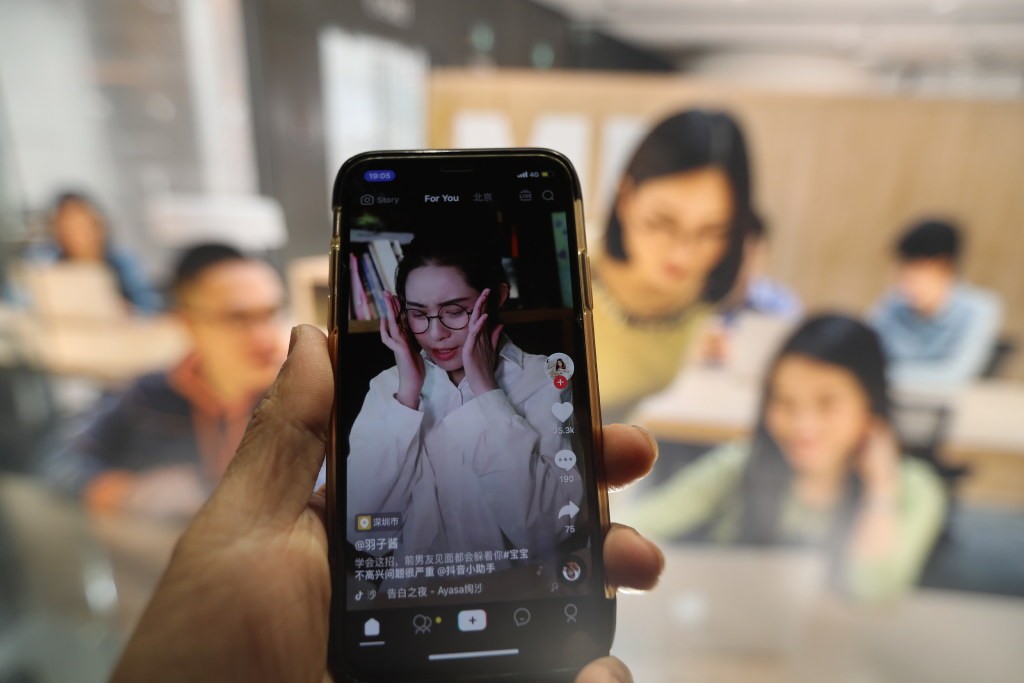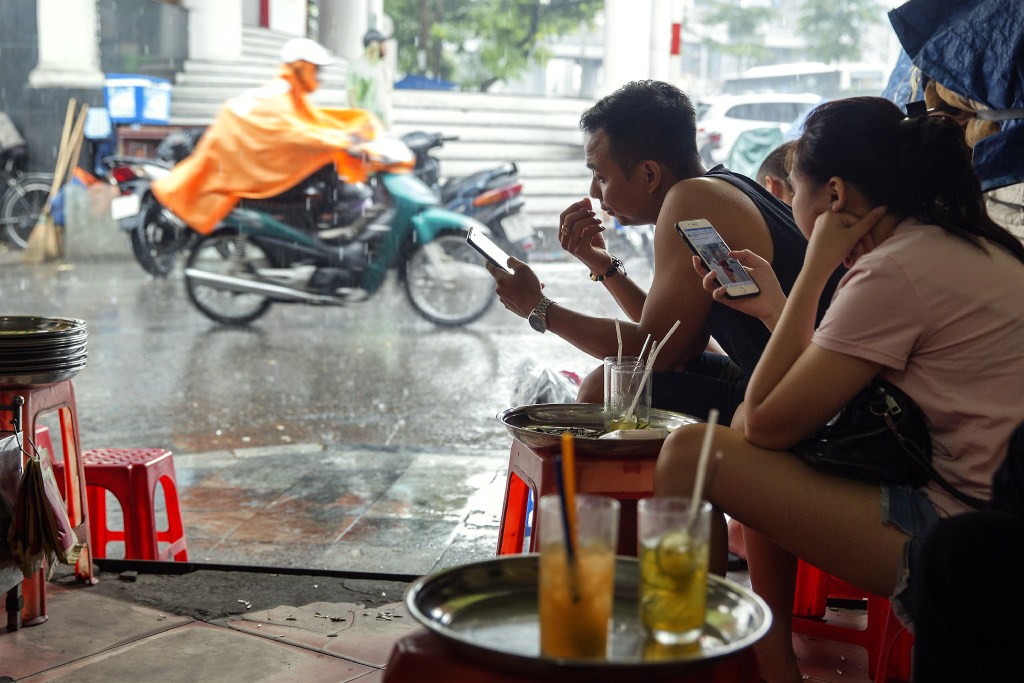
TikTok is one of the coolest apps in Vietnam
ByteDance's short video app TikTok is keeping people in Vietnam up-to-date on viral trends
For 20-year-old Nguyen Ngoc Anh, a third-year student at the Da Nang University of Economics, the coolest trends among hip, young people in Vietnam are now on TikTok, not just from the legacy platforms Facebook, Instagram and YouTube.
TikTok, the viral short video sensation, has its roots in China
The short video app, which hosts clips that run for 15 to 60 seconds, was seemingly built for rapid virality. Hashtags such as #beautymirror, #rabbitdance, or #agechallenge are catching fire in Vietnam, and young people are adapting well to TikTok’s tools, picking up tricks to make their short videos snazzy and stand out from the crowd.
“You have to sing, dance, do something weird, cute, and you also need cool music and special effects,” said Ngoc Anh, who has been using the app for nearly one year – even before TikTok’s official launch in the country this past April.

Launched in 2016 by Beijing-based start-up ByteDance, TikTok, which has an equivalent but separate entity called Douyin in China, is already a global phenomenon, with about 500 million active monthly users in 154 countries.
China’s viral king ByteDance is the first major Chinese tech player that made a mark on the world
Globally, it was the third most installed app in the first quarter of 2019, trailing after two communication apps, WhatsApp and Facebook Messenger. TikTok’s overseas expansion has been plotted carefully, including in Vietnam, where 72 per cent of the population own a smartphone.
“In Vietnam, it is clear that users can rapidly catch up with new trends. They are also highly open-minded about consuming and creating new kinds of creative content,” said Nguyen Lam Thanh, head of public policy for TikTok in Vietnam. “The need for interaction and sharing among the Vietnam community is considered high, compared to other countries in the region.”
TikTok went live in Vietnam well before its official launch in April. At the time, the platform claimed it already had more than 12 million active users and 1,000 content creators based in Vietnam. TikTok does not disclose the latest statistics about user growth in Vietnam but estimates that Vietnamese users spend an average of 28 minutes per day on the platform, with peak traffic occurring between 6:00pm to 8:00pm on Friday and Saturday. It is currently the top app in the entertainment category in Vietnam’s App Store.
According to Thanh, localised campaigns have become a big part of TikTok’s engagement strategy in Vietnam. Its travel-themed campaign, #HelloVietnam, is organised in cooperation the Vietnam National Administration of Tourism and has been a huge hit. The campaign helps promote Vietnam’s image via short-form mobile content.
Vietnam’s popular central coastal city Da Nang was chosen for the first phase of the campaign. Both #HelloVietnam and #HelloDanang have attracted more than 15,300 videos and 150 million views. The campaign’s next stop for this month is Ninh Binh Province, where the movie Kong: Skull Island was shot in 2017.

With the goal of becoming competitive in the Vietnam’s online ad market, where Facebook and Google dominate, TikTok understands that localisation is also key to winning over Vietnamese consumers, especially Gen Z users – people born from 1996 onwards – that prefer short-form, influencer-driven content over conventional advertising.
“We adopt a localised approach to markets such as Vietnam as our teams create local campaigns that resonate with the local audience, and this enables us to maintain good engagement with creators and users,” Thanh said.
This past July, Viettel, Vietnam’s top telecom corporation, was able to execute a viral music marketing campaign through two influencers – a singer and a footballer – who choreographed catchy dance movements. Vietnamese users on TikTok then took part in a competition to mimic the dance rhythm and post their videos on the platform. In all, they generated more than 45.8 million views for the telco within 10 days.
A representative from Ho Chi Minh City-based advertising agency Mind Max Agency said TikTok holds promise as a “fertile land” for businesses to raise brand awareness and target, in particular, Gen Z consumers and users. Mind Max Agency said its two-week campaign for South Korea live stream app Spoon Radio reached 169% of its target for the number of downloads.
TikTok has come under fire in Indonesia and India. The app was banned briefly in both countries. With the Vietnamese government pledging to eliminate what it calls “toxic content” – anti-government propaganda, fake news, videos inciting violence, and videos that otherwise undermine “national traditions and customs” – from what Vietnamese nationals can access online, TikTok has signalled that it complies with the government’s strict policy governing online content.
Thanh said TikTok combines both technology and human capacity to moderate content on the platform. He noted that TikTok recently removed 6 million videos in India that violate its community guidelines. In December 2018, TikTok launched a Safety Center in Vietnamese, providing users with online resources and tools to better manage their usage of TikTok. So far, it’s unclear whether TikTok has encountered or had to remove any “toxic content” in Vietnam.
But for Ngoc Anh and other users on the platform, TikTok is where you can be yourself without having to be concerned about content curation. Vietnamese consumers prefer a more liquid user experience. Twitter, Snapchat, and even Instagram do not hold the same mass appeal as Facebook – and now TikTok, whose rapid-fire format offers a more personal touch and a steady stream of entertainment.
For more insights into China tech, sign up for our tech newsletters, subscribe to our Inside China Tech podcast, and download the comprehensive 2019 China Internet Report. Also roam China Tech City, an award-winning interactive digital map at our sister site Abacus.

